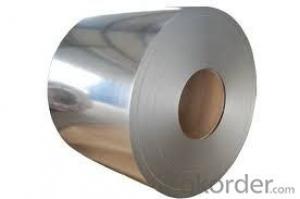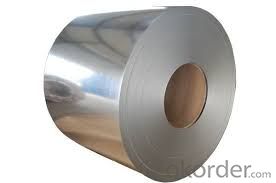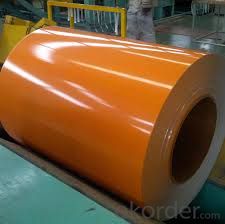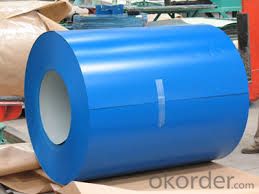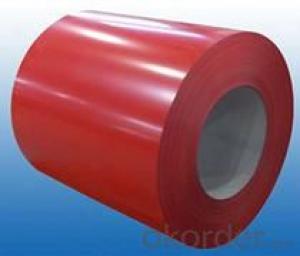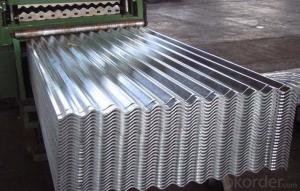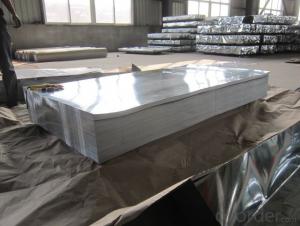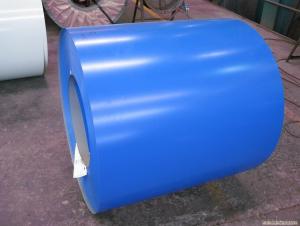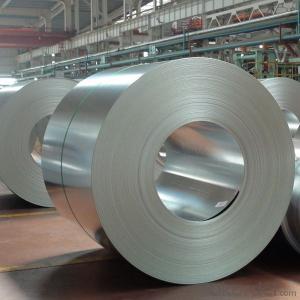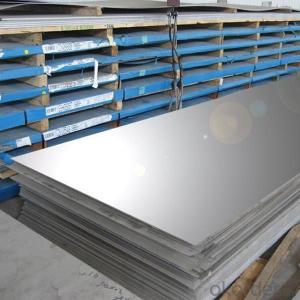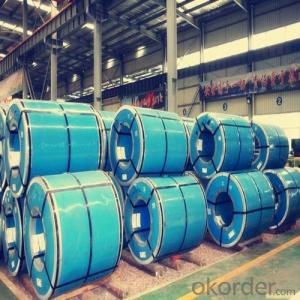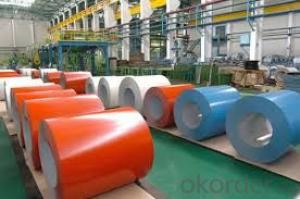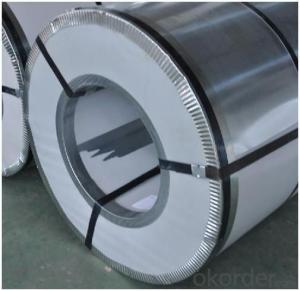Color Hot Rolled Steel Coil /Cold Rolled Steel Coil
- Loading Port:
- Shanghai
- Payment Terms:
- TT OR LC
- Min Order Qty:
- 20 m.t.
- Supply Capability:
- 9000 m.t./month
OKorder Service Pledge
OKorder Financial Service
You Might Also Like
Hot rolled coils/plates
Type: steel coil and steel plates
Material: SS400-Q235-Q345-SPHC
Width:1250mm 1500mm 1800mm 2000mm
HOT-ROLLED COIL/PLATES(Material: SS400-Q235A/B-SPHC) | |||
2.00*1250/1500L | 3.50*1250/1500L | 5.75*1250/1500L | 11.50*1250/1500L |
2.30*1250/1500L | 3.75*1250/1500L | 7.50*1250/1500L | 11.75*1250/1500L |
2.50*1250/1500L | 4.50*1250/1500L | 7.75*1250/1500L | 13.50*1250/1500L |
2.75*1250/1500L | 4.75*1250/1500L | 9.50*1250/1500L | |
3.00*1250/1500L | 5.50*1250/1500L | 9.75*1250/1500L | |
PATTERN-ROLLED COIL/PLATES(Material: Q235A-Q235B) | |||
3.00*1250L | 3.75*1250L | 4.75*1250L | 5.75*1250L |
3.50*1250L | 4.50*1250L | 5.50*1250L | 7.50*1250L |
MIDDEL-PLATE(Material: Q235A/B-Q345A/B) | |||
8*1800/2000L | 16*1800/2000L | 25*1800/2000L | 45*1800/2000L |
10*1800/2000L | 18*1800/2000L | 30*1800/2000L | 50*1800/2000L |
12*1800/2000L | 20*1800/2000L | 35*1800/2000L | |
14*1800/2000L | 221800/2000L | 401800/2000L | |
Name | galvanized steel coil dx52d z gi |
Grade | GB/T-12754: 2006, JIS3302, EN 10142, ASTM A653, JIS G3302, SGCC/SGCH, GB/T2518, European Standard, ASTM A792, JIS G3321, JIS G3317 |
BASE PLATE | Cold rolled steel sheet, hot dipped zinc coated steel sheet hot dipped A-Z coated steel sheet |
EQUIPMENT | Double coating double baking; |
CAPACITY | 5000Mt/week |
SIZE | Thickness 0.18mm—2mm, width 40mm—1250mm |
ZINC COATING | 40g-275g /m2 |
PAINT THICKNESS | Top:20+-5um, back:5-7um |
COIL WGT | 3Mt - 8Mt |
COIL ID | φ508mm,φ610mm |
BASE SHEET | Cold rolled steel sheet, hot dipped zinc coated steel sheet (small, regular or zero spangle), hot dipped A-Z coated steel sheet |
SURFACE PAINT | EP, PE, HDP, SMP, PVDF |
COLOR SERIES | RAL color number series |
Applications of cold rolled steel sheet coil :
1) Automotive bodies: filters, fuel tanks, etc.
2) Construction materials: roofings, welding pipes,
3) Electric and electronic appliances: computer cans, etc.
4) Steel cans: containers, etc.
5) Steel furniture: washing machines, refrigerators, microwaves, etc.
6) Drums
7) Office equipment: printer, recorders, etc.
8) Motors and transformers
Process of cold rolled steel sheet coil :
Pay off reel-double cut shear-welder-notcher-entry accumulator-pre cleaning section-furnace-hot bridle-zinc pot-air knife-after cooler-water quench-dryer- skin pass mill-dryer-tension leveler-dryer-chemical coater-chemical oven-cooler-exit accumulator-oiler-exit shear-tension reel.
Features of cold rolled steel sheet coil :
1) cold rolled steel coils prices is manufactured to have a long durability, strong corrosion resistance and shiny surface.
2) cold rolled steel coils prices features excellent forming properties, paintability, weldability, and is suitable for fabrication by forming, pressing and bending.
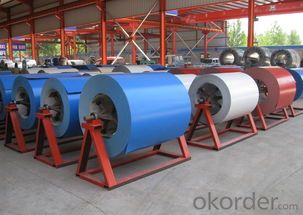
Q&A Acceptable payment term and way ?
ANSWER: T/T,L/C, T/T + L/C, D/P
Q&A Do you accept OA payment terms?
ANSWER: Yes, sure, but it normally depending on the order value
Q&A Do you have QC team?
ANSWER: Yeah, sure, our QC team is very important, they will keep the quality control for our products.
- Q: What is the process of galvanizing steel sheets?
- Galvanizing steel sheets involves immersing them in a bath of molten zinc, which creates a protective coating on the surface of the sheets. This process, known as hot-dip galvanization, helps to prevent rusting and corrosion, making the steel more durable and long-lasting.
- Q: Are the steel sheets susceptible to rusting?
- Certainly, steel sheets can be prone to rusting. Rust forms due to the chemical reaction involving iron, oxygen, and moisture. Given that steel is mostly composed of iron, it can readily corrode upon contact with air and water. Nevertheless, the degree of rusting varies based on factors like the steel type, environmental circumstances, and the availability of protective coatings. To thwart rusting, people frequently apply substances such as zinc or paint onto steel sheets to establish a barrier between the steel surface and its surroundings. Additionally, taking regular care and storing the sheets properly can significantly reduce the likelihood of rust formation.
- Q: How can the white steel plate be bright and cleaned?
- White steel plate has higher plasticity, toughness and mechanical strength, acid, alkaline gas, solution and other media corrosion. It is an alloy steel which is not easily rusted, but it is not absolutely rusty.
- Q: What is the average lifespan of painted steel sheets?
- The average lifespan of painted steel sheets can vary depending on various factors such as the quality of the paint, the environment in which the sheets are used, and the level of maintenance they receive. However, in general, painted steel sheets can have a lifespan of 15 to 25 years. This estimate assumes that the sheets are properly installed, regularly inspected for damage or corrosion, and receive any necessary touch-up or maintenance work as needed. It is important to note that factors such as exposure to harsh weather conditions, chemical exposure, and physical damage can significantly impact the lifespan of painted steel sheets. Regular maintenance and proper care can help extend the lifespan of painted steel sheets beyond the average range.
- Q: What is the typical coefficient of thermal expansion of a steel sheet?
- The typical coefficient of thermal expansion of a steel sheet is around 10-12 parts per million per degree Celsius (ppm/°C). This means that for every degree Celsius increase in temperature, the steel sheet will expand by 10-12 ppm in all directions. However, it's important to note that the coefficient of thermal expansion can vary depending on the specific type and composition of the steel. Different types of steel alloys may have slightly different coefficients, but the range of 10-12 ppm/°C is a common average.
- Q: Can steel sheets be used for water storage tanks?
- Yes, steel sheets can indeed be used for water storage tanks. Steel is a durable and strong material that is commonly used for various industrial applications, including water storage tanks. The sheets are typically fabricated and shaped into cylindrical or rectangular tanks, providing a reliable and long-lasting solution for storing water.
- Q: Are steel sheets suitable for wastewater treatment facilities?
- Yes, steel sheets are suitable for wastewater treatment facilities. Steel sheets provide several advantages that make them a good choice for this application. Firstly, steel sheets are highly resistant to corrosion, which is crucial in wastewater treatment facilities where the presence of harsh chemicals and corrosive substances is common. This resistance to corrosion ensures the longevity and durability of the steel sheets, reducing maintenance and replacement costs. Additionally, steel sheets can withstand high temperatures and pressure, making them suitable for various processes involved in wastewater treatment, such as filtration and separation. Moreover, steel sheets are easy to clean and sanitize, which is essential in maintaining hygiene standards in wastewater treatment facilities. They can be easily washed and disinfected, preventing the growth of bacteria and other harmful microorganisms. Lastly, steel sheets are environmentally friendly as they can be recycled, reducing the environmental impact of wastewater treatment facilities. Overall, steel sheets offer the necessary strength, durability, and resistance to corrosion, making them a suitable choice for wastewater treatment facilities.
- Q: What are the different alloying elements used in steel sheets?
- To enhance the properties and performance of steel sheets, various alloying elements are utilized. Some commonly employed alloying elements are as follows: 1. Carbon: Being the most crucial alloying element, carbon imparts strength and hardness to the steel. It also enhances its heat-treatability, making it suitable for diverse applications. 2. Manganese: For improved mechanical properties like strength and toughness, manganese is frequently added to steel sheets. It also aids in reducing brittleness. 3. Chromium: Steel sheets are enriched with chromium to augment their corrosion resistance. By forming a thin protective layer on the steel's surface, it prevents rusting and corrosion. 4. Nickel: Nickel is commonly incorporated into steel sheets to enhance their toughness and impact resistance. It also improves their ability to withstand extreme temperatures, rendering them suitable for high-temperature applications. 5. Silicon: The addition of silicon to steel sheets improves their strength and hardness. It also aids in deoxidizing the steel during the manufacturing process. 6. Vanadium: Vanadium serves as an alloying element in steel sheets to enhance strength, toughness, and heat resistance. It also refines the grain structure of the steel, making it more uniform and fine. 7. Copper: Copper is included in steel sheets to enhance corrosion resistance and thermal conductivity. It also improves the weldability and brazability of the steel. 8. Tungsten: Tungsten is utilized as an alloying element in steel sheets to enhance hardness, strength, and wear resistance. In small quantities, it is often added to improve cutting and drilling capabilities. These examples highlight just a few of the alloying elements commonly employed in steel sheets. The selection of alloying elements depends on the specific requirements of the application and the desired properties of the steel. Different combinations and concentrations of these elements can be employed to achieve a wide range of characteristics in steel sheets.
- Q: What welding rod should be used for welding of cast iron and Q235B steel plate?
- Q235B is a kind of low carbon steel commonly used in China, good welding performance, applicable to a variety of welding engineering used J422 (new brand E4303) in order to improve the efficiency of welding, and can also be used CO2 welding, welding wire can be used H08.
- Q: What is the average cost of steel sheets compared to fiberglass?
- The average cost of steel sheets is generally higher compared to fiberglass sheets.
Send your message to us
Color Hot Rolled Steel Coil /Cold Rolled Steel Coil
- Loading Port:
- Shanghai
- Payment Terms:
- TT OR LC
- Min Order Qty:
- 20 m.t.
- Supply Capability:
- 9000 m.t./month
OKorder Service Pledge
OKorder Financial Service
Similar products
Hot products
Hot Searches
Related keywords
